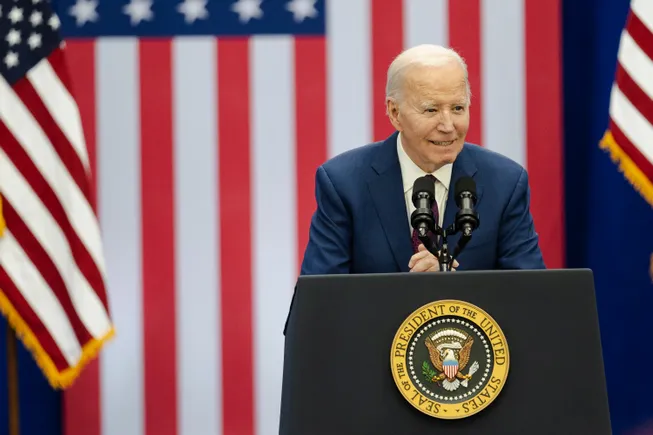President Joe Biden signed legislation on Wednesday exempting semiconductor manufacturing facilities that received funding under the CHIPS and Science Act from federal environmental reviews.
The Building Chips in America Act exempts manufacturing projects, like those from Intel and Taiwan Semiconductor Manufacturing Co., from needing review under the National Environmental Policy Act of 1969. The result, chipmakers hope, will be a more streamlined construction process for their projects.
The legislation has had a contentious journey, with industry groups saying it’s needed to avoid construction delays and continue the buildout of the country’s semiconductor industry. Environmental reviews can take years to complete, which groups like the Semiconductor Industry Assocation claimed would slow projects.
Environmental groups like the Sierra Club, on the other hand, say it creates a dangerous path for an industry that uses PFAS in production to circumvent necessary reviews. The group pushed unsuccessfully for Biden to veto the bill.
“This bill would remove the last remaining federal lever to assess the impact of massive semiconductor fabs on drinking water, air quality, climate change, and community health,” Harry Manin, Deputy Legislative Director for Industrial Policy at the national Sierra Club, said in an Oct. 2 statement.
PFAS are often present in the chemicals used to manufacture semiconductors, such as photoresist liquids that resist exposure to UV light, as well as the equipment, including high purity water distribution systems in chip plants, according to industry group Semi.
The bill was led in the Senate by Arizona Sen. Mark Kelly. His state is home to some of the country’s biggest semiconductor construction projects, including Intel’s $20 billion fabrication plants and TSMC’s three fabs worth a combined $65 billion. Both companies are set to receive billions of dollars in CHIPS funding for the projects.
The law’s passage comes as semiconductor companies barrel forward with their manufacturing construction projects across the country, some of which have already hit delays.
In February, Intel delayed its $20 billion Ohio project, citing a slow chip market. A month earlier, TSMC delayed the timeline of its second Arizona fab, after already delaying its first plant due to a lack of specialized labor.
The law unanimously passed in the Senate late last year and moved quickly through the House of Representatives in September.
“Getting this bill passed and signed into law took more than a year of bipartisan negotiation and work,” Kelly said in a statement. “The result is smart, effective policy that will maximize our efforts to bring microchip manufacturing back to America by preventing unnecessary delays to getting these factories built.”

